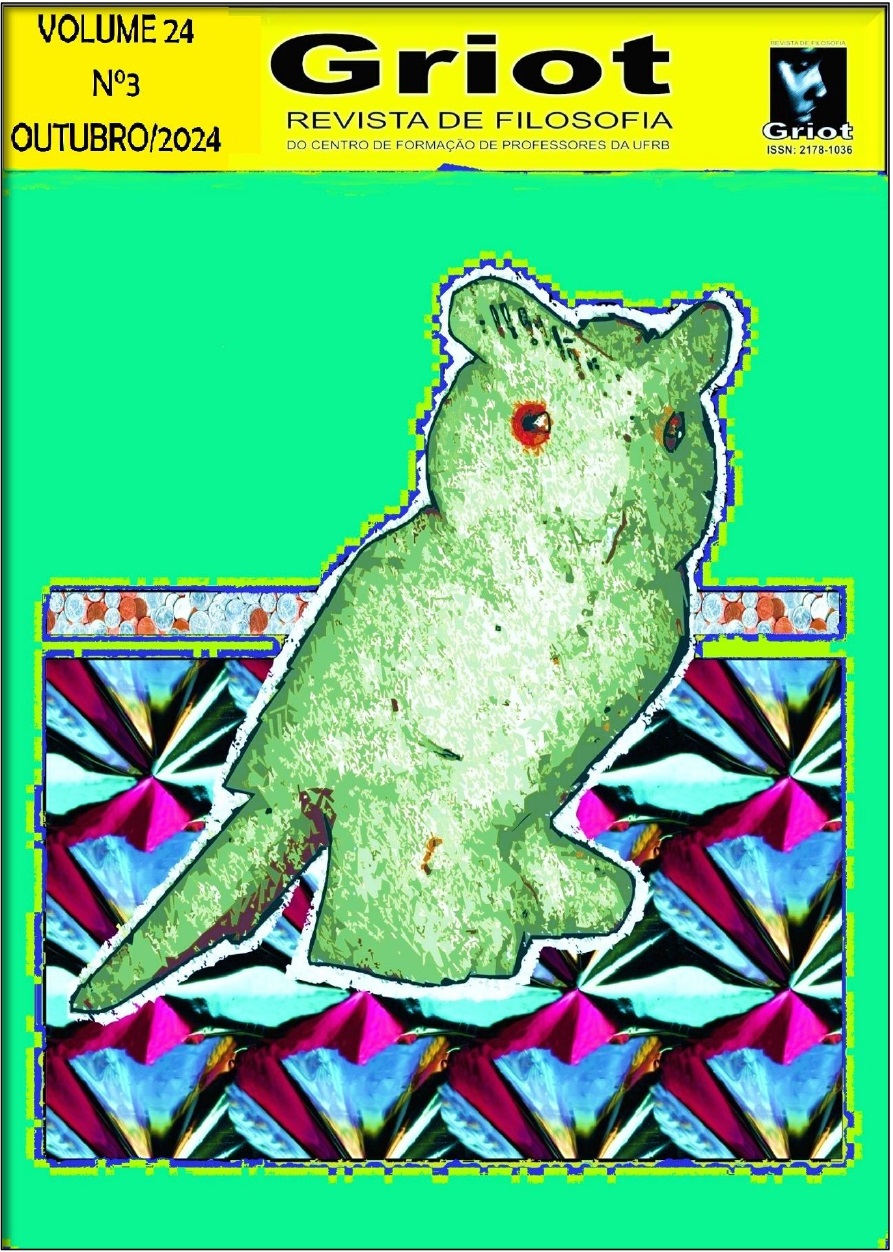Rorty’s idea of epistemological behaviorism: a holism without metaphysical supports
DOI:
https://doi.org/10.31977/grirfi.v24i3.4859Keywords:
Sellars; Rorty; Explanation; Justification.Abstract
The present essay analyzes the understanding of epistemological behaviorism as a holism without metaphysical presuppositions, from Richard Rorty (1931-2007). In order to do so, we will start from the idea of Wilfrid Sellars’ “Myth of the Given”, as a philosophical impulse that Rorty appropriates to develop his notion that epistemological behaviorism would be, at best, a holism to create justification contexts. Initially, we will propose a discussion on the question of psychological nominalism, presented in Margutti's text, Skepticism, pragmatism and Sellars' critique of the “Myth of the Given”, observing how this assumption constitutes a Rortyan critique to reach the emphasis of the proposal. Next, we will emphasize the understanding that the neopragmatist philosopher has of what it is for him, the notion of epistemological behaviorism, without metaphysical connotations, one in which he starts from the vision of sensitive and epistemic data to explain our action with the world, until one that emphasizes the idea that it would be better perceived as a holism, that is, a language game that says what the best game can be played, through a practice of social justification. Our work relies on the theoretical contribution of Rorty (1979), Margutti (2000), among others. Our study indicates that in order to detach himself from metaphysical explanations and (re)describe epistemological behaviorism, Rorty points out a way out through linguistic apparatuses that provide an environment in social practices that allow going beyond sensitive impressions or cognitive data, clarifying how the proposal can be fuzzy if it aligns with justification rather than explanation.
Downloads
References
ARAÚJO, Inês Lacerda. O neopragmatismo de R. Rorty. Cognitio. v.7, n.1, jan./jun. 2006, p. 13-24.
GUTTING, Gary. Rorty’s Critique of Epistemology. In: Richard Rorty. Charles Guignon e David R. Hiley Org´s. New York: Cambridge University Press, 2003. P. 41-60.
MARGUTTI, Paulo R. Ceticismo, pragmatismo e a crítica de Sellars ao “Mito do Dado”. In: Ceticismo: perspectivas históricas e filosóficas. Henrique de Araújo Dutra, Plínio Junqueira Srnith Org´s. Florianópolis: NELIUFSC, 2000. p. 137-156.
LIGHT, A; MCKENNA, E. Pragmatism and the Future of Human-Nonhuman Relationships. In: Animal pragmatism: rethinking human-nonhuman relationships. Org´s Erin McKenna; Andrew Light. Bloomington: Indiana University Press, 2004. p. 1-16.
RORTY, Richard. A filosofia e o espelho da natureza. Rio de Janeiro: Relume-Dumará, 1994.
RORTY, Richard. Contingency, irony and solidarity. Cambridge: Cambridge University Press, 1989.
SINGER, Peter. Libertação Animal. Trad. de Marly Winkler e Marcelo Brandão Cipolla. São Paulo: Martins Fontes, 2010.
SELLARS, Wilfrid. Empiricism and the philosophy of mind. London: Haward University Press. 1997.
Downloads
Published
How to Cite
Issue
Section
License
Copyright (c) 2024 Bruno Araujo Alencar, Heraldo Aparecido Silva

This work is licensed under a Creative Commons Attribution 4.0 International License.
The authors who publish in Griot: Revista de Filosofia maintain the copyright and grant the magazine the right of first publication, with the work simultaneously licensed under the Creative Commons Attribution 4.0 International License, allowing sharing and adaptation, even for commercial purposes, with due recognition of authorship and initial publication in this journal. Read more...









































































